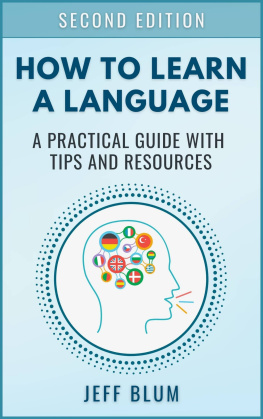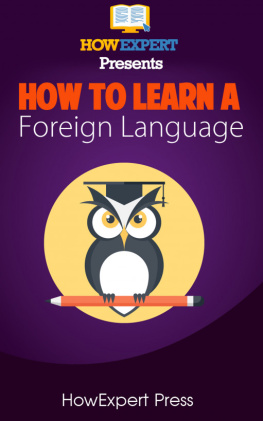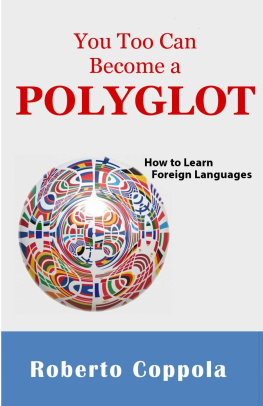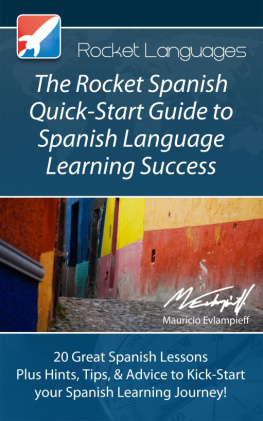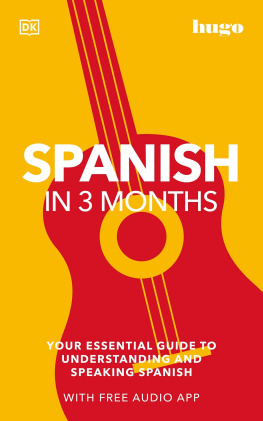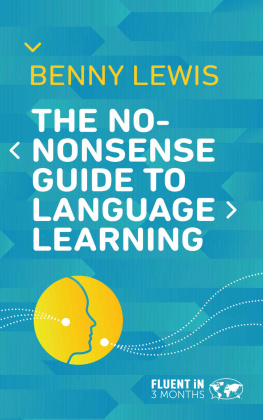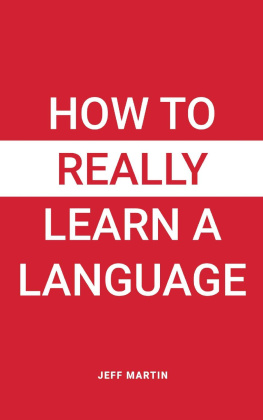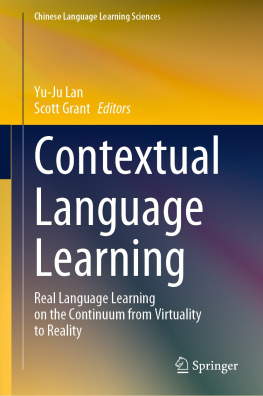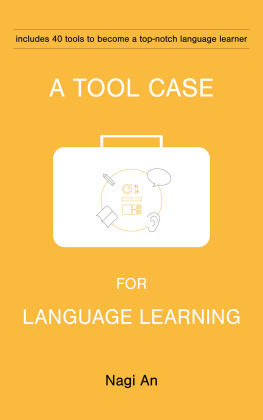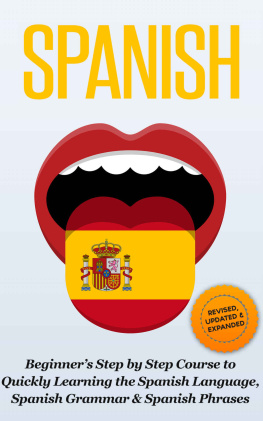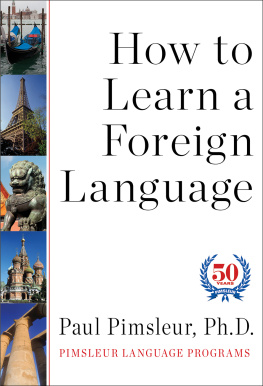
liseries.com/how-to-learn-a-language/
Preface
Congratulations! Youve decided to learn a new language and soon you will enjoy the benefits of speaking more than one language. Still, studying and learning can be a daunting process. Should you self-study? Take a course? Buy a software program? Hire a private tutor? What kinds of learning systems are available and which might be right for you? How about the myriad of online resources available? And where should you begin? Grammar? Vocabulary? Listening? Reading and Writing? By the way, how long will all this effort take, anyway? Answering these questions is my goal with this short but thorough book. In addition, I believe I have compiled the best collection of online language resources to be found in one location; the small investment of time you make in reading what follows will pay great dividends as a faster, more robust language learning experience.
Introduction
After three years of traveling in Latin America, I achieved a lower intermediate level of Portuguese and an advanced level of Spanish. I also studied Japanese for some years and reached an intermediate level in that language and I am at about the same level with Thai.
So, with no true multilingual fluency, I cant claim any special expertise, but my interest in achieving fluency leads me to think about and research how to best learn a language. What follows is an attempt to clarify and organize my own thoughts about mastering a language while also presenting the results of extensive online research into the systems and techniques advocated by various language learning experts and sites. You will also find a comprehensive set of resources to aid you with whatever approach to study you pursue.
First Things First
Jana Fadness makes a good argument that you should learn something about your target language first. Some languages are more grammatically complex than others. Some have tones and/or pronunciation issues that are more difficult to master. Others have complicated writing systems. Later, I will discuss some useful thoughts on deconstructing a language, focusing on its grammatical aspects, but my point here is that knowing more about the language you want to learn can help you craft a better, personalized approach to learning and mastering it. To get an idea of your target language, the website How to Learn Any Language offers a useful collection of language profiles, as does Omniglot. Wikipedia can also be an excellent resource and, of course, you can always use your favorite search engine.
Another thing to consider when first learning a language is what you want to prioritize. Some language gurus have strong opinions about this. For example, some believe you should start speaking day one and make that your focus. Some believe gaining a working knowledge of core vocabulary should come first. Others emphasize grammar. Most take a blended approach. I think you should be guided by your personal goals, the specific challenges of your target language, and your preferred learning systems. And consider whether your prioritization risks developing bad habits. For example, if you study a language with a different writing system, will using transliteration in the early days rather than learning the script end up hurting your later literacy goals? If you are studying a tonal language or a language with sounds you are unfamiliar with, will ignoring your bad pronunciation early on force you to relearn later and make it harder for others to understand you?
Learning Systems
Plenty of language learning systems exist. Some are formal, like Greg Thomsons growing participator approach, Wendy Maxwells accelerative integrative methodology, the social interactionist theory, Stephen Krashens theory of second language acquisition, and the relational frame theory. Other systems are informal and found in various blogs and certain products, such as Gabriel Wyners four stage system and the Fluent in 3 Months Premium program. Some systems are incorporated into paid programs, such as Pimsleur, Speed Learning Languages, Rosetta Stone, Fluenz, and Assimil. A full and proper examination of these various learning systems is beyond what I want to accomplish here, though I encourage you to follow the provided links if you are interested in learning more.
On a more abstract level, Tim Ferriss, in his blog post, How to Learn Any Language in 3 Months, offers his opinion of the ideal learning system based on three elements (in order): effectiveness (priority), adherence (interest), and efficiency (process). These refer to the what, why, and how of learning a target language, respectively. In simple terms, you first decide what to learn, based on usage frequency (priority); you then filter materials based on your likelihood of continued study and review, or adherence (interest); finally, you determine how to learn the material most efficiently (process).
Of course, you dont need the ideal language learning system. Any system will work, eventually. But some methods are more effective than others and some are less likely to lead to frustration or quitting altogether. My advice is to craft or adopt a system that comprises three parts: a source of interesting content in the target language, a method to understand this content, and a system to review and remember what youve learned. Get those in place and you should be well on your way.
Are You Your Biggest Obstacle?
Regardless of what systemsif anyyou choose to use, your unique learning style and personality will play an important role in your success. Certain personalities are fearless and outgoing enough to just start trying to speak with anyone and everyone they meet who knows their target language. Then there are the rest of us, with varying degrees of timidity and fear of embarrassment and judgment.
It is this fear and timidity that can derail or slow down our language learning progress. The fact is, there is NO way to learn a new language without making mistakes: LOTS of mistakes. Yes, you will sound silly. Repeatedly. But, heres the thing. If youre speaking with someone with whom you dont share a common language, there is no other option. And, if you are speaking in your target language instead of a common language, you are likely worrying for no reason about the other persons opinion. That they speak more than one language means they know all too well how hard it is. And they will almost certainly be thrilled that you are attempting to learn their language. Think of things from another perspective. When someone tries to speak to you in broken English, for example, do you ridicule them and make them feel insecure or do you try to encourage their efforts?

